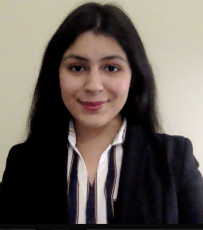According to a projection by UNHCR, 97.3 million people of concern around the world needing assistance in 2021, including 50 million Internally Displaced people, 26 million refugees, and 5 million asylum seekers. Additionally, 85% of refugees worldwide are in low and middle-income countries where the pandemic has exacerbated economic challenges and strained their fragile health infrastructure. The health concerns facing this vulnerable population are tremendous.
- Direct health challenges: Living in urban areas and densely populated camps with shared bathrooms and showers, limited hygiene, and limited protective gear make social distancing impractical and difficult. Many refugees are required to have their identification documents if they need access to health services, however since many are undocumented, the further narrowing of their already limited public health service access is a serious concern.
- The burden of trauma: In addition to the trauma that comes with fleeing their homes, dealing with violence, stigmatization, and grief, the pandemic has furthered the mental health challenges of this community. They are experiencing the emotional toll of being a refugee but also fearing losing their livelihood and being isolated during this time.
- Economic challenges: During the lockdowns, many refugees have lost their daily income and their temporary jobs. Additionally, they have also been prevented from working in the host country. This further limits their ability to afford treatment if infected with the virus and rebuild their lives.
- Halt in the education of the youth: During COVID-19, many schools across the world were closed for in-person classes. The technology and infrastructure required to support a virtual education in many countries were not available. Particularly for the girls who are refugees, an estimation by Malala Fund depicts that half of the refugee girls in secondary schools won’t be able to return when school reopens. It is crucial that we don’t let the pandemic and our negligence rob millions of children of their education and future.
- Limited access to information: The socio-cultural barriers and marginalization of these communities have made it challenging to promote health literacy and up-to-date information about the virus and the pandemic.
- Limited healthcare professionals in countries of violence: In 2020 alone, there were over 1000 attacks, and 400 particularly with COVID-19, on health care professionals, facilities, as well as patients in countries of conflict such Yemen, Syria, and Libya, according to the UC Berkley Human Rights Center and Insecurity. Additionally, in Syria, approximately 70% of the health workforce left the country leaving only 52% of the primary care centers available. In Yemen also, only 50% of all the health facilities are functional with a mere number of 10 healthcare workers for 10,000 people.
Moving forward, governments of the host countries must include refugees in their health and protection schemes to increase access to quality healthcare regardless of their documentation. An effort should be made to increase the dissemination of the pandemic guidelines in these communities. Education and health are a right to all citizens of the world and governments should make a point to understand that nobody is safe until everybody is safe.
Posted By Sarina Maini
Posted Jul 26th, 2021

